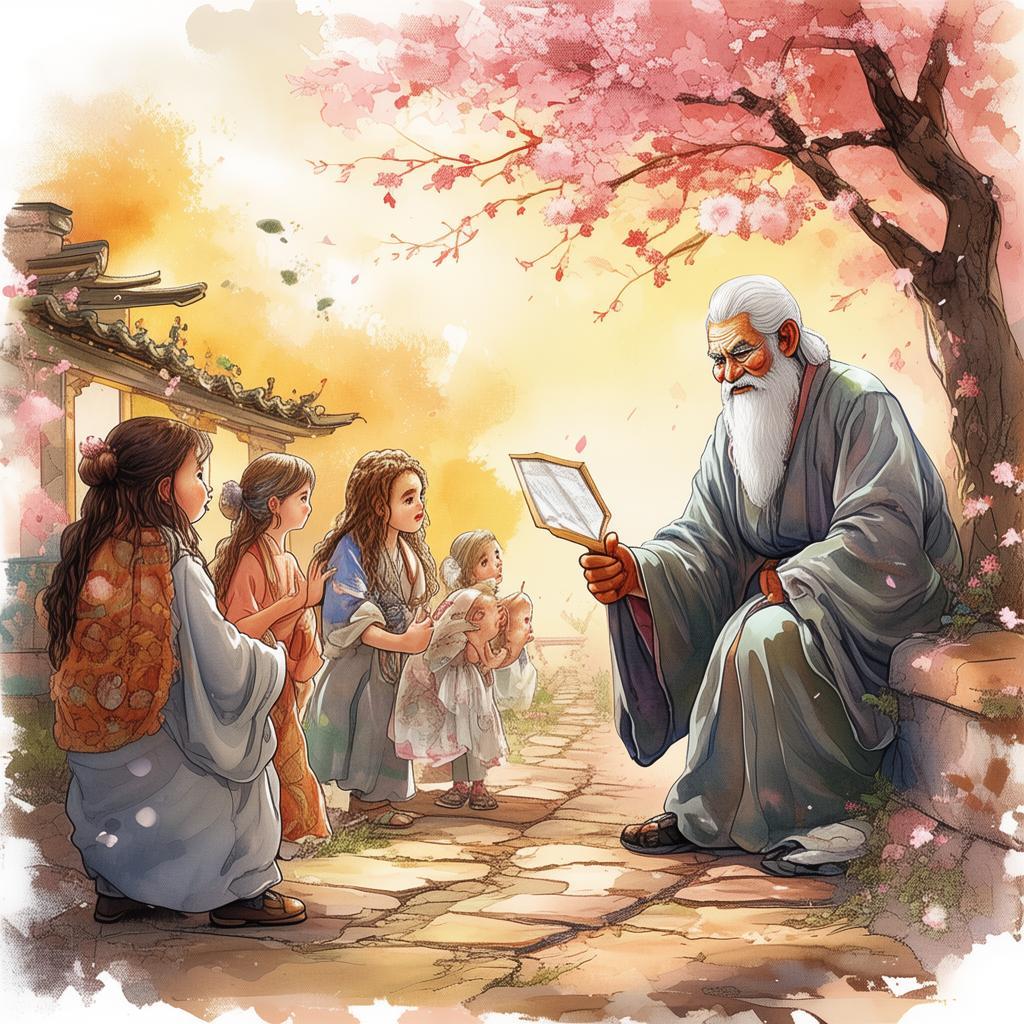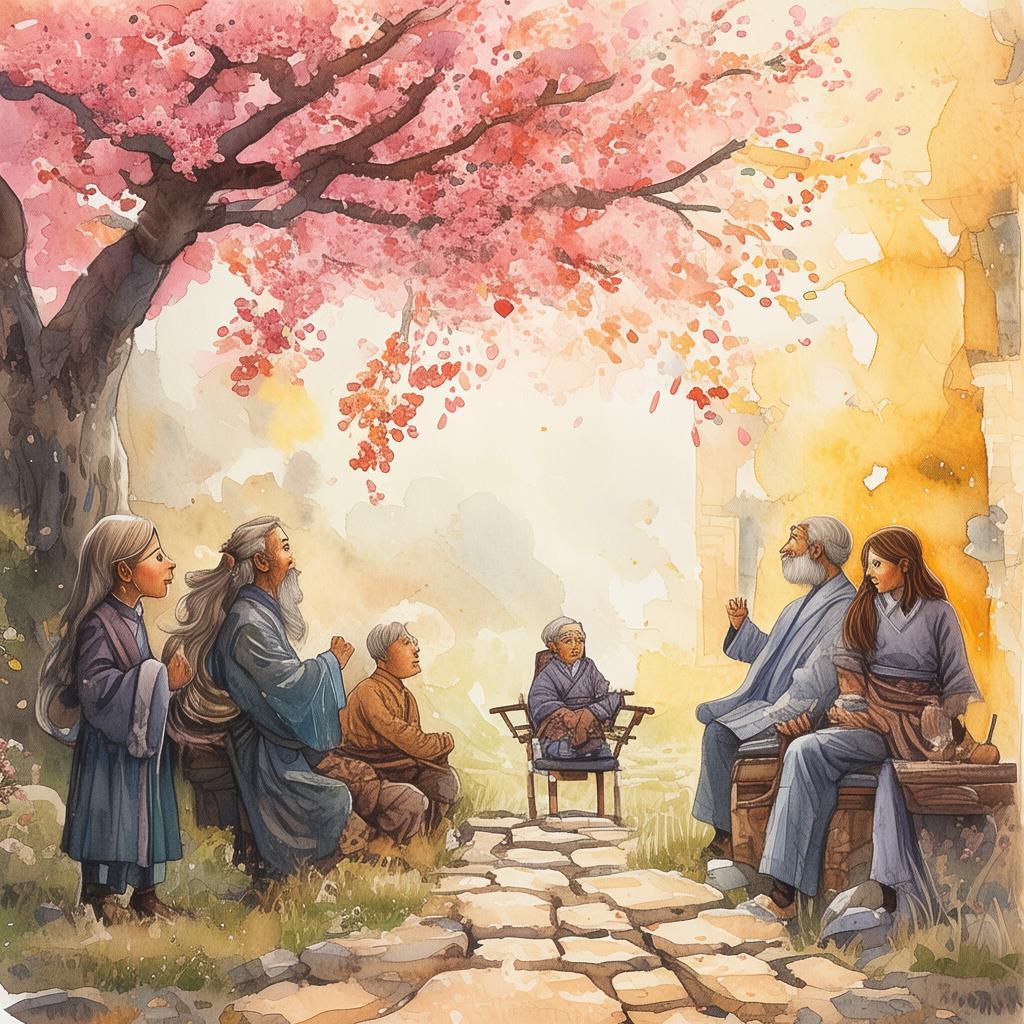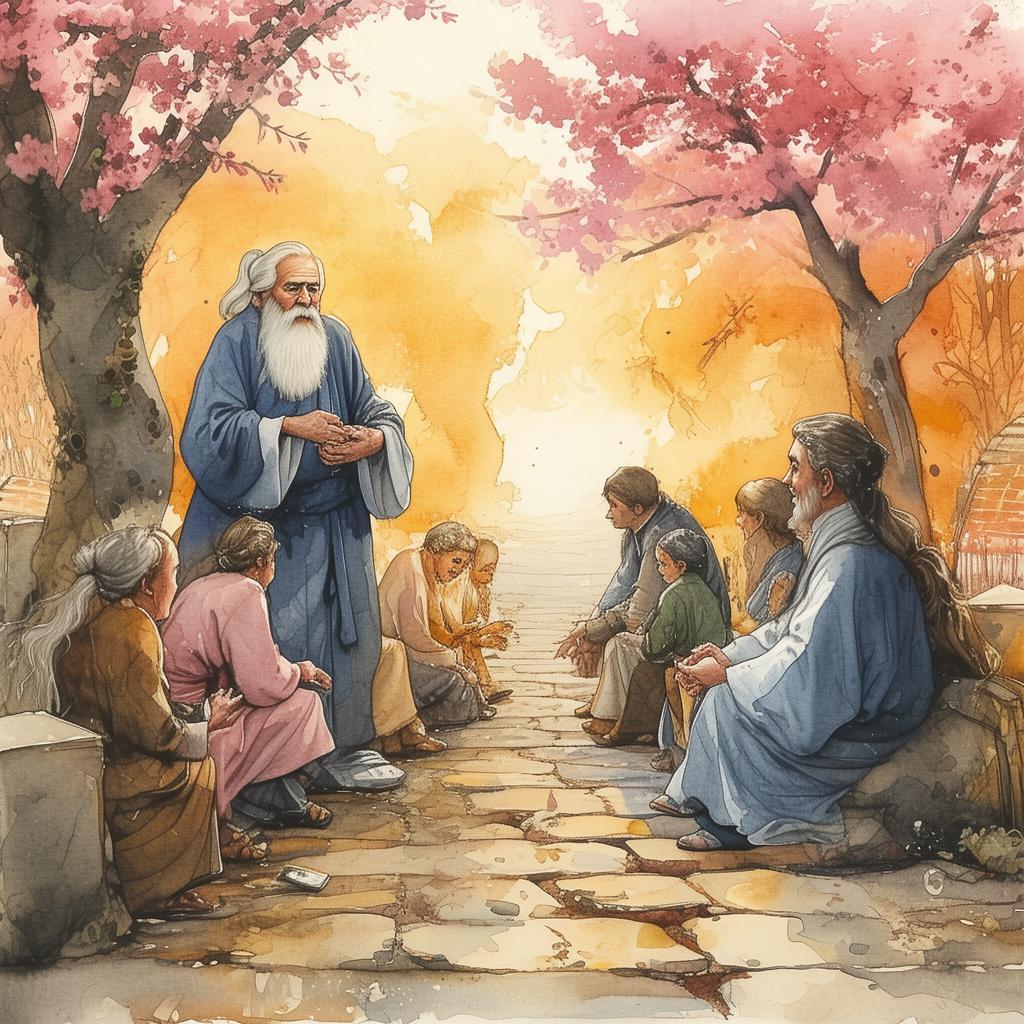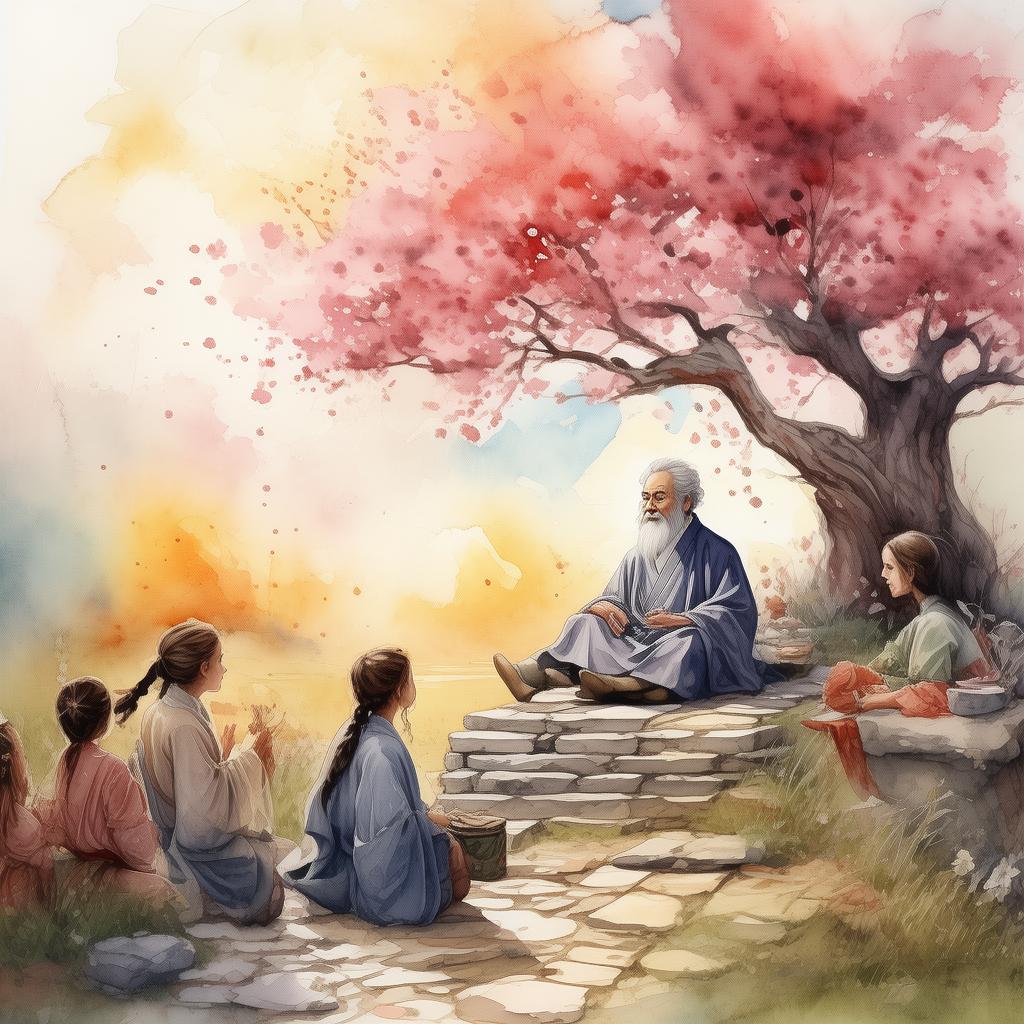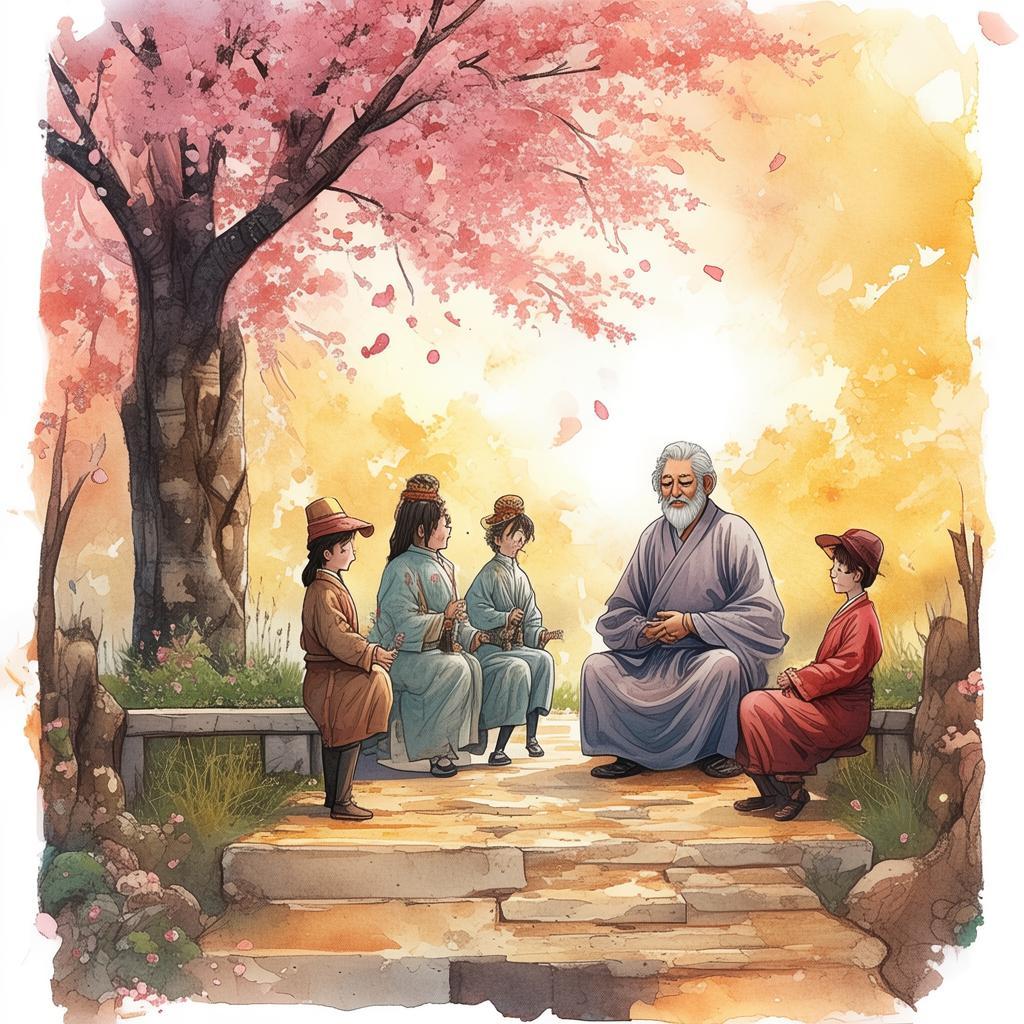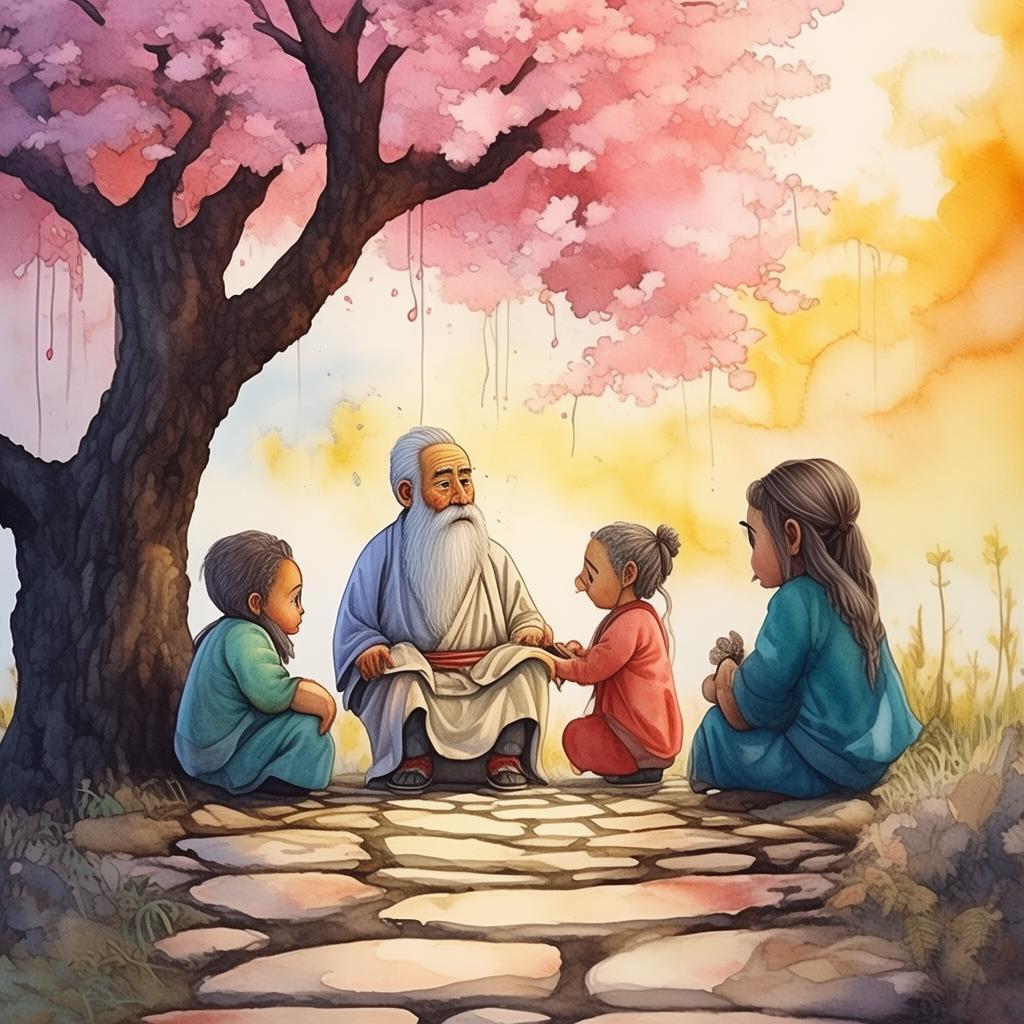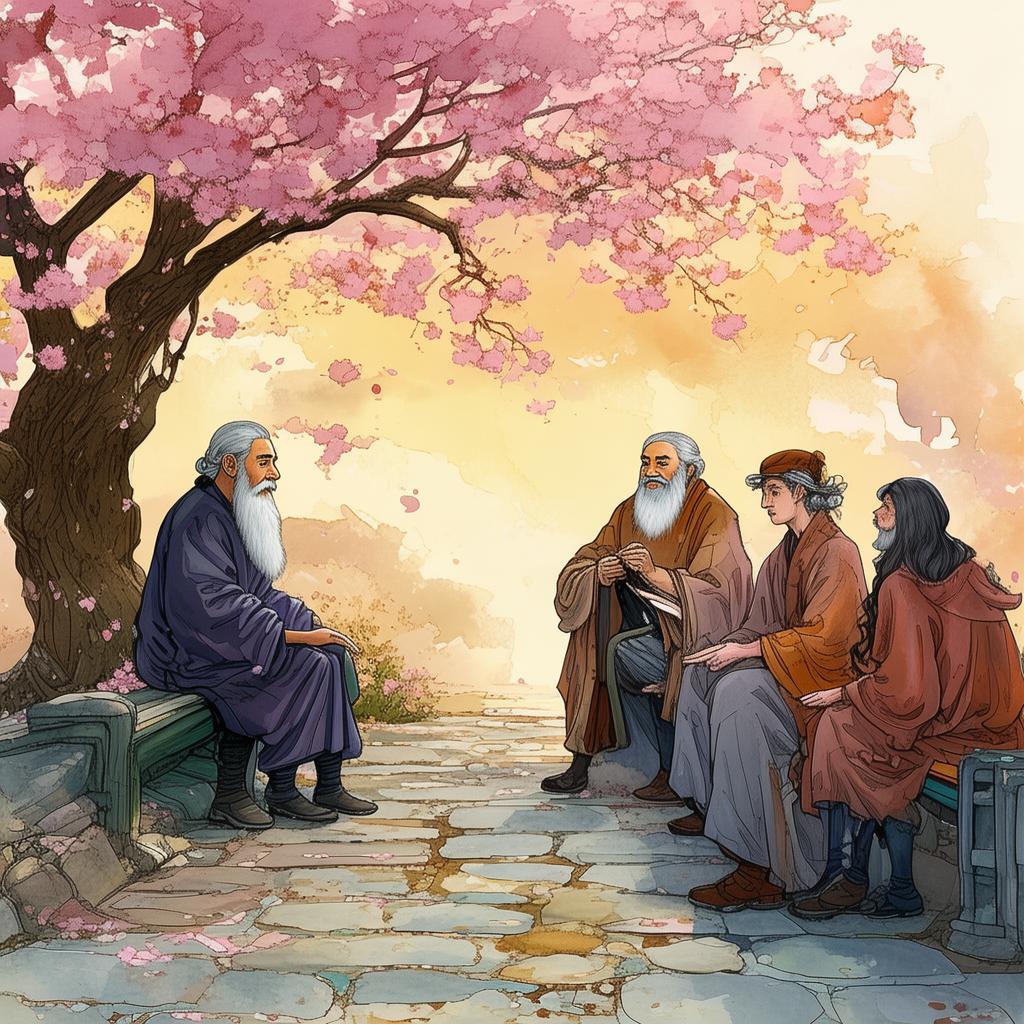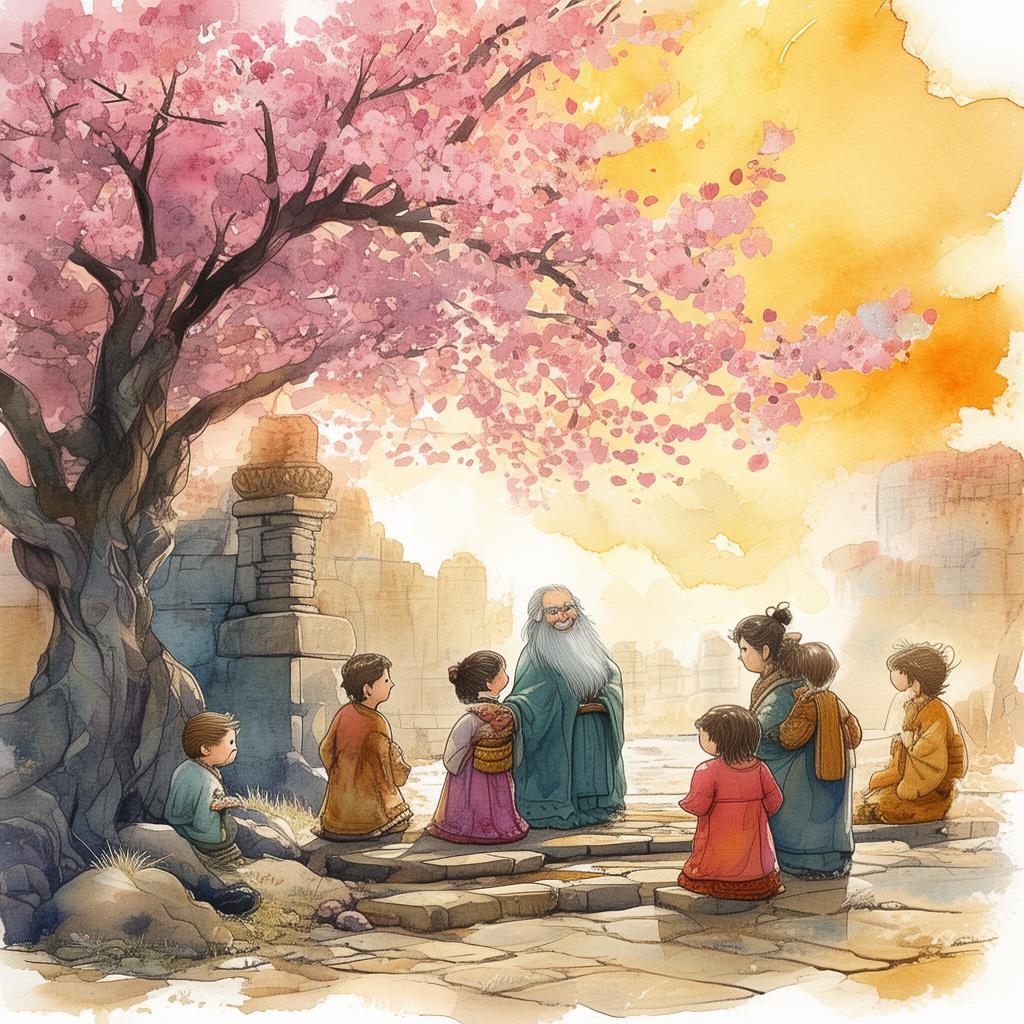The Priceless Price: The Enigma of the Idiom Academy
In the bustling city of Changsha, nestled within the heart of ancient China, there was a place known far and wide as the Idiom Academy. This was no ordinary institution; it was a place where idioms were not just taught, but revered as the wisdom of ages. The Academy had stood for centuries, its walls etched with the stories and sayings that shaped the language and the culture of the people.
The story began with a young linguist named Ming, who had always been fascinated by the enigmatic world of idioms. He had spent years studying the texts and the histories behind each phrase, but nothing could have prepared him for the mystery that awaited him within the Academy's hallowed halls.
One crisp autumn morning, as the sun cast its golden rays through the ancient windows, Ming found himself standing in the Academy's main hall. The air was thick with the scent of aged wood and the faint aroma of incense. As he gazed upon the walls adorned with ancient idioms, a peculiar feeling crept over him—a sense that something was about to change his life forever.
The Academy's headmaster, an elderly man with a twinkle in his eye and a knowing smile, approached Ming. "Ah, Ming, you have come at a most auspicious time," he said, his voice filled with a wisdom that seemed to come from the very essence of the Academy itself. "The time has come for you to uncover the true nature of our idioms."
Ming nodded, his heart pounding with anticipation. The headmaster led him to a hidden room deep within the Academy, a place not seen by many and spoken of in whispers. The walls were lined with ancient scrolls, each one holding the secrets of an idiom. "These are the scrolls," the headmaster said, "and they hold the true essence of our idioms. But there is a price to be paid for their knowledge."
Ming, eager to learn, asked, "What is the price, Master?"
The headmaster's eyes glinted with mischief. "The price is not in coins or jewels, but in a riddle that has never been solved. The one who solves it will earn the right to understand the idioms fully. But beware, for the riddle is as old as time itself and as tricky as the wind."
Ming, undeterred by the challenge, agreed to take on the riddle. The headmaster handed him the first scroll, which bore the words of a famous idiom: "A bird in the hand is worth two in the bush." Ming pondered the riddle, but the more he thought, the more elusive it seemed.
Days turned into weeks as Ming delved deeper into the scrolls, each one presenting a new riddle. He spent sleepless nights, poring over ancient texts and seeking the answers. He met with scholars and sages, hoping to find the key to unlocking the enigma. But as he grew closer to the solution, he realized that the true price was not just knowledge, but the cost of his own soul.
One night, as Ming sat alone in the Academy, the headmaster appeared once more. "You have come very close, Ming," he said. "But the true test is not just your intellect, but your heart. The answer lies not in words, but in the essence of what it means to be human."
Ming, now exhausted and despondent, asked, "What must I do, Master?"
The headmaster smiled. "Go to the heart of the city, to the place where dreams and reality intertwine. There, you will find the answer to your riddle, and you will learn the true value of the idioms you seek."
Ming left the Academy, following the headmaster's instructions. As he wandered through the bustling streets of Changsha, he realized that the riddle was not just about the idioms, but about the essence of life itself. He saw the beauty in the everyday struggles of the people around him, the joy in their laughter, and the pain in their tears.
As the sun began to set, casting a golden glow over the city, Ming arrived at the place the headmaster had spoken of. It was a small, humble tea house, filled with the aroma of freshly brewed tea and the soft hum of conversation. In the midst of the chaos, he found a sense of peace.
The tea house's owner, an elderly man with a kind smile, noticed Ming's contemplative expression. "You seem troubled, young man," he said. "Would you like to share your burden with an old friend?"
Ming, with a heart full of gratitude, shared the riddle with the tea house owner. The old man listened intently, his eyes twinkling with a knowing light. After a moment of deep thought, he replied, "The answer is not in the idiom itself, but in the choices you make. A bird in the hand is worth two in the bush because it represents the value of the present moment over the unknown future."
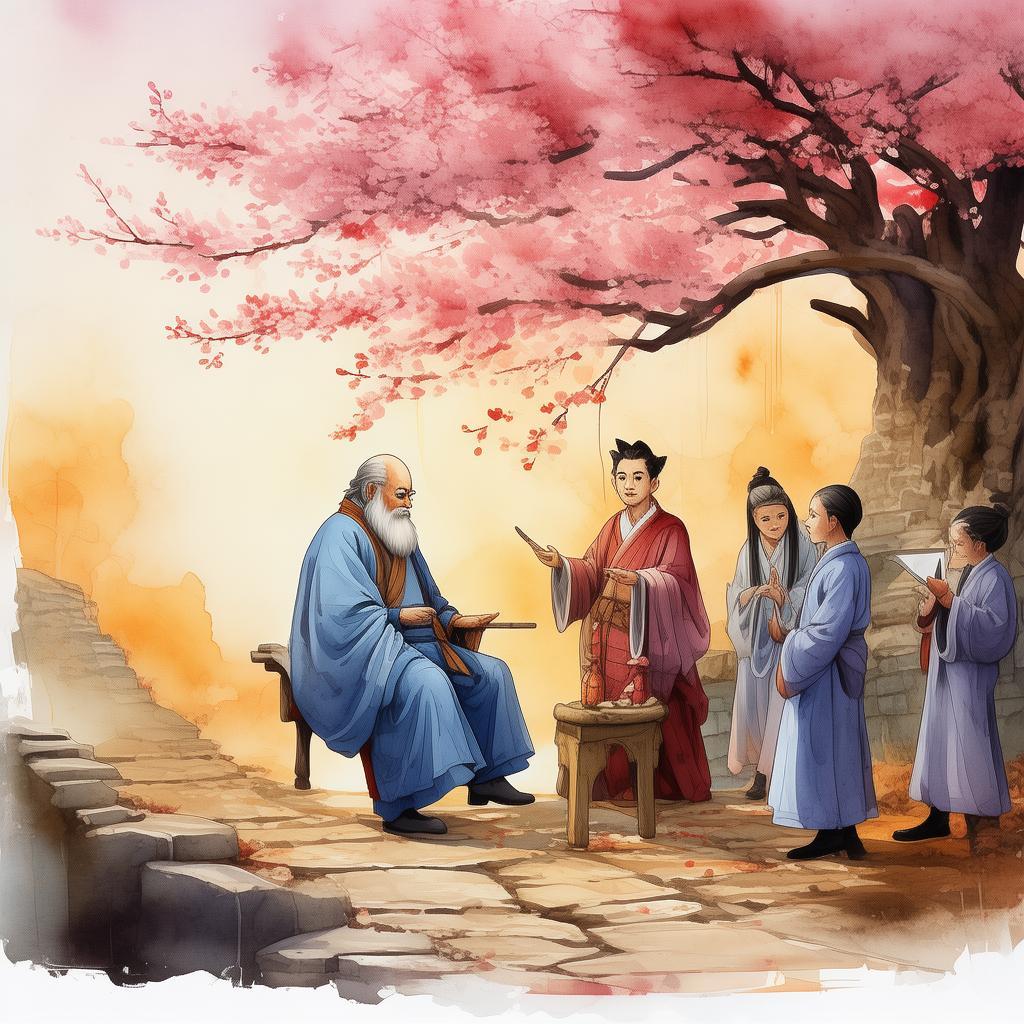
Ming's eyes widened. "You are correct, old friend," he said. "The idioms are not just words; they are lessons for life. They remind us to cherish the present, to live fully, and to make choices that align with our values."
With the riddle solved, Ming returned to the Idiom Academy, ready to uncover the final secrets of the scrolls. The headmaster greeted him with a warm smile. "You have done well, Ming," he said. "You have not only understood the idioms but have also learned their true value."
Ming, now a true master of idioms, spent the next few years teaching others the wisdom he had gained. He became a legend in Changsha, known for his profound understanding of the idioms and the lessons they imparted.
The Priceless Price: The Enigma of the Idiom Academy became a story told for generations, a tale of the journey to understanding the essence of life through the wisdom of ancient idioms. And Ming, the young linguist who had once sought the knowledge of the idioms, found that the true price was not in coins or jewels, but in the priceless lessons he had learned along the way.
✨ Original Statement ✨
All articles published on this website (including but not limited to text, images, videos, and other content) are original or authorized for reposting and are protected by relevant laws. Without the explicit written permission of this website, no individual or organization may copy, modify, repost, or use the content for commercial purposes.
If you need to quote or cooperate, please contact this site for authorization. We reserve the right to pursue legal responsibility for any unauthorized use.
Hereby declared.
